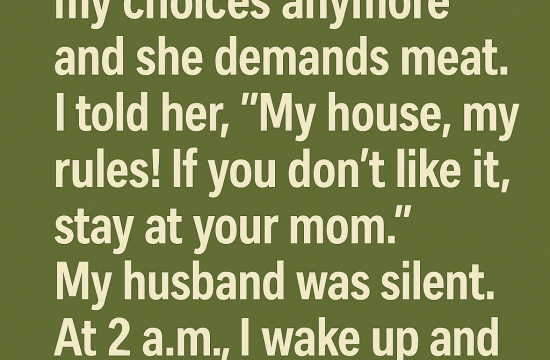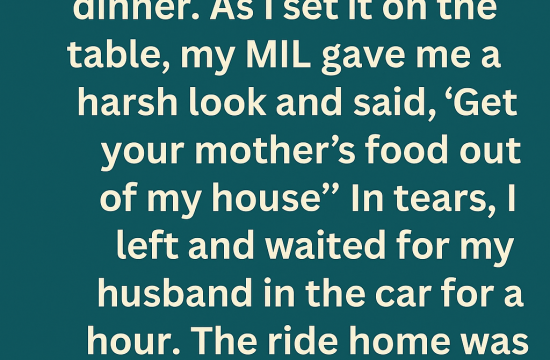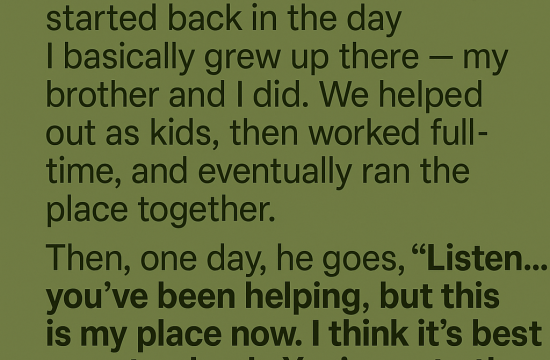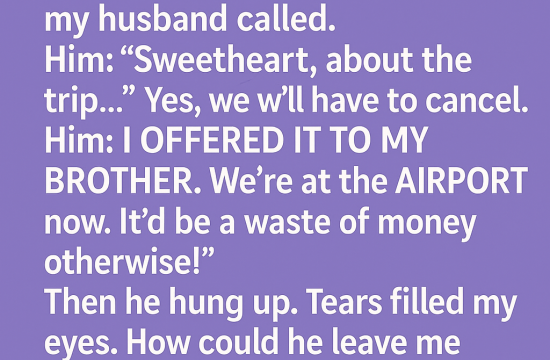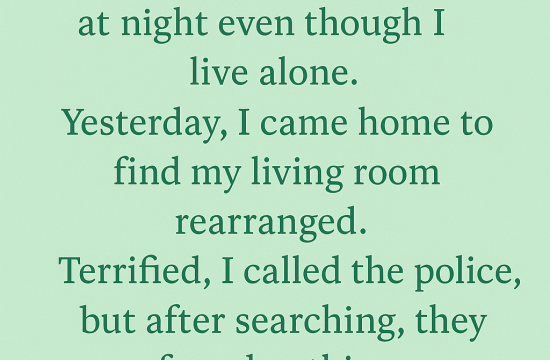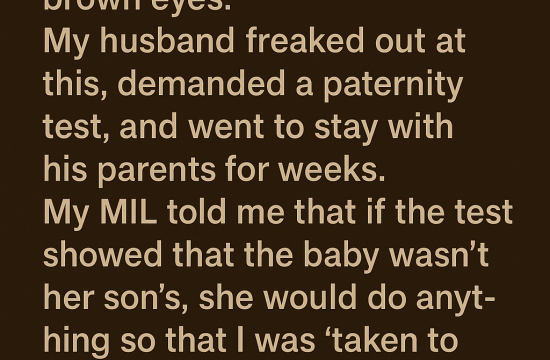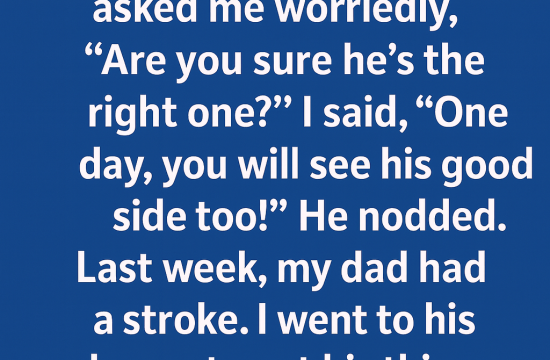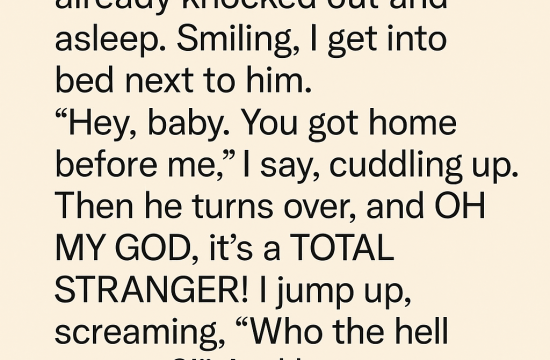My stepmom never liked me. She dumped chores on me, made me feel like a burden, and my dad just stayed quiet—too scared to stand up to her.
One day, I came home to find all my stuff dumped on the front lawn. She had kicked me out of my own house.
And my dad? He just stood there and muttered, “Maybe this is for the best.”
I crashed at my best friend’s, sobbing, thinking my world had ended.
I had no idea that three days later, everything would flip.
I got a call from a lawyer—my grandmother’s estate had finally been settled, and I was named the sole heir to her lake cabin and a small savings account.
I was stunned. I hadn’t known Grandma left me anything. She passed two years earlier, and I thought the only people who got anything were my dad and stepmom.
I’d always been close with Grandma Mavis. She used to sneak me butterscotch candies when my stepmom wasn’t looking. We’d sit on her porch listening to loons calling over the lake. I felt safe there—free to breathe.
After she died, Rina told me Grandma left nothing but debts. I believed her. Why wouldn’t I? I was sixteen, grieving, and under her control.
Now, at nineteen, I learned the truth. Grandma had left me the cabin—and $12,000, her life savings. Not a fortune, but enough to start over.
My best friend Naya hugged me so tight I thought my ribs would crack. “Lennox, you have a place of your own!” she said, beaming. I couldn’t stop shaking. It felt like surfacing after years underwater.
I packed my life into a duffel: clothes, a photo album, and my mom’s old guitar. Naya drove me three hours north to the lake.
When we pulled up, I nearly cried. The paint was peeling, weeds overtaking the steps—but it was mine. All mine. I felt Grandma’s arms around me.
I spent that first week cleaning floors, fixing the faucet, and clearing dead branches. Each night I fell asleep sore but proud, lulled by the loons’ familiar call.
But on the seventh morning, I woke to pounding on the door. I peeked through the curtain—Dad’s pickup was out front. And he wasn’t alone.
Standing next to him was Rina, her face twisted with anger.
I almost didn’t open the door. But I needed answers.
My dad looked worn, like he hadn’t slept. Rina barged in, scanning the cabin with narrowed eyes. “This is ours,” she snapped. “Your grandma promised it to your father.”
My voice trembled. “The will says it’s mine.”
She scoffed. “We took care of her. We deserve this. You’re just a child.”
My dad stayed silent. Again. Like he forgot I was his daughter.
“I’m not leaving,” I said. “If you think you have a claim, talk to the lawyer.”
They stormed out, slamming the door. I collapsed on the couch, tears falling. Why wouldn’t he protect me? Why did he always let her speak for him?
Later that night, I called Mr. Hanford, the lawyer. “They have no claim,” he assured me. “Your grandmother’s wishes are clear.”
Relief flooded me. But so did something new—anger. I’d spent years thinking I was unwanted, when in truth, someone loved me enough to leave me a chance at freedom.
I applied for a job at a local diner. Saskia, the owner, gave me a shot bussing tables. Hard work, but every dollar felt like a step forward.
One night, I found a note slipped under the door:
“You don’t deserve this. Leave or regret it.”
My hands shook. It had to be Rina. But I wouldn’t run.
Naya came to stay a few nights. Her presence made me braver.
On the second night, we heard footsteps. We peeked out—Rina was creeping toward the cabin with a flashlight.
I whispered into the phone as I dialed 911. Minutes later, red and blue lights lit up the trees. Rina froze, caught. The deputies escorted her away with a warning.
I thought it was over. But the next day, my dad called.
“I’m sorry, Lennox,” he said. “I should’ve protected you. I let her control everything.”
His voice cracked. He told me Rina had tried to break in again—and this time, she’d been arrested.
“I’m leaving her,” he said quietly. “I don’t deserve forgiveness, but I want to try again—with you.”
I didn’t know what to say. I told him I needed time.
Life settled into a rhythm. I worked at the diner in the mornings, fixed up the cabin in the afternoons. I planted flowers around the porch, like Grandma used to.
While clearing the attic, I found a box of letters tied with twine—all addressed to me.
In them, Grandma wrote how proud she was of me, how she hoped the cabin would become my refuge. She also said something that stuck:
“Your father is a good man at heart, but he’s weak. Don’t let his mistakes define you. Build your own life.”
Her words gave me peace. My dad wasn’t evil. Just broken.
A week later, he showed up again. Alone.
We sat on the porch for hours watching the lake. He told me about his regrets—how fear, guilt, and grief had paralyzed him.
“Can I help fix the cabin?” he asked. I hesitated. Then remembered Grandma’s letter. I nodded.
In the months that followed, we rebuilt not just the cabin—but our relationship. He told me stories about my mom I’d never heard. We cried. We painted. We forgave.
I saved every penny and enrolled in online college classes.
Saskia pulled me aside one day. “You’ve got grit, Lennox. Keep going.”
Her words lit something in me. For the first time, I felt seen.
A year passed. The cabin looked beautiful. Naya helped me plant a garden. I was promoted to server at the diner. Locals became friends.
Then I got a letter from the lawyer.
Turns out, Rina had never finalized her divorce from her first husband. Her marriage to my dad wasn’t even legal—and she might face fraud charges.
It was a twist worthy of a movie. But instead of revenge, I felt relief. Justice, in its quiet way, had arrived.
She skipped town, leaving behind nothing but debt and broken promises.
My dad sold their old house and moved into a modest rental nearby. “I don’t need much,” he said. “Just a second chance.”
I kept saving, and eventually turned Grandma’s cabin into a cozy bed-and-breakfast. Guests came from all over, drawn to the lake, the peace, the story.
Through it all, I learned something vital:
Life breaks you—but it also builds you.
People will hurt you—but they can heal too.
I’m not just the girl who was thrown out.
I’m the girl who rose.
Who built something real.
Who found her voice.
Now, every morning, I sip coffee on the porch Grandma loved so much. The loons call across the water. I listen, and I smile.
Because I’m finally, exactly where I’m meant to be.




